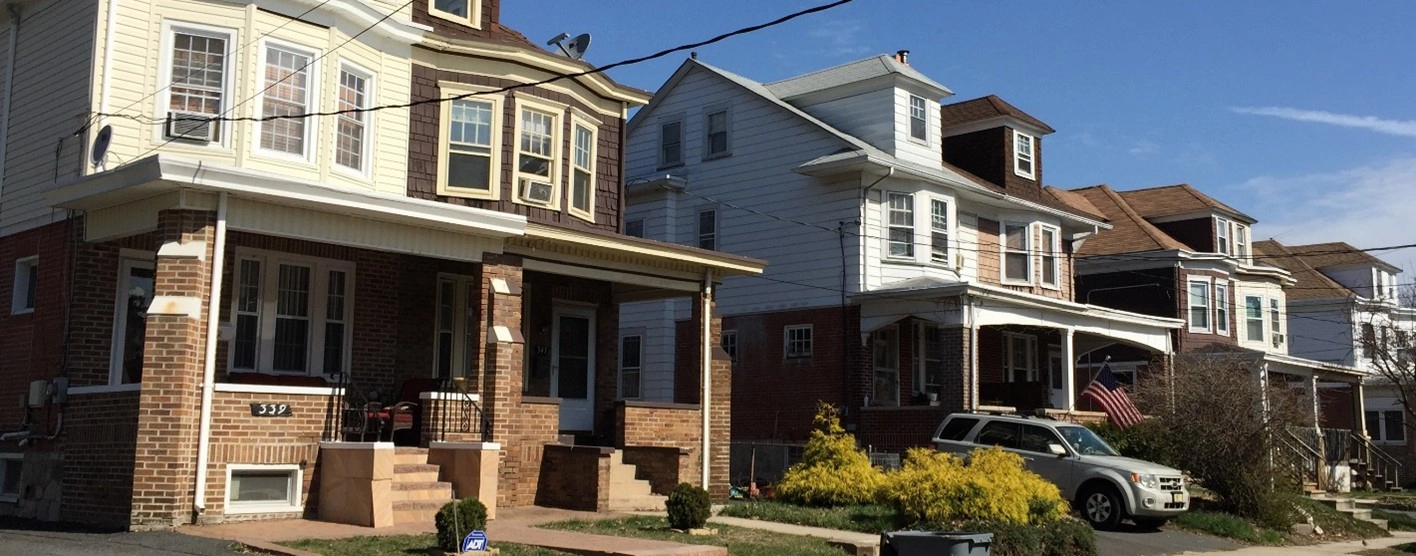
To take action on the racial wealth gap, New Jersey’s lieutenant governor Tahesha Way signed an update to the Real Estate Appraisal Act, explicitly meant to stop race-based bias from influencing appraisals. As our readers know, appraisals often occur when a home seller transfers a deed to a home buyer.
A 2022 study from the Brookings Institution uncovered a pattern of undervaluing homes in mainly minority neighborhoods. Bias in the appraisal process bears part of the responsibility for this.
The New Jersey Attorney General has since stepped in. Now, New Jersey penalizes appraisal methods that fall afoul of the state’s law against discrimination. And from this year on:
- Appraisers will take state-issued fair housing and appraisal bias courses.
- The state’s consumer affairs division will bolster support for cases where unfairness is evident, helping households realize the full power of their hard-earned home equity.
The new law expressly bars appraisers from taking personal traits of sellers or potential buyers into account when valuing a home. Those traits include race or immigration status; age, disability status; religion; gender, gender identity, or sexual orientation; or the marital/familial status of sellers or potential buyers.
One senator who opposed the law said it could lead appraisers to overvalue homes, and that’s “not good for the banks.”
Slow But Sure: A New Affordable Housing Law

Earlier this year, New Jersey governor Phil Murphy signed a law to expand affordable housing across the state. Local governments must now hash out their fair housing responsibilities and make plans for adding at least 100,000 accessibly priced homes.
It will take time for the new law to make a dent in the housing crisis. And the law’s opponents say it will push the state past its limits, as New Jersey suburbs struggle to meet the law’s mandate to bring as many as 500,000 new homes to the state overall.
Under the new law:
- New Jersey’s Department of Community Affairs will publish non-binding estimates of the need for affordable housing, town by town.
- New Jersey courts will hear arguments from the towns through a new dispute resolution system.
- Towns will be incentivized to create more affordable and senior housing units, near shopping and transit hubs.
New Jersey towns are not allowed to obstruct housing opportunities for people of modest incomes. That’s per the Mount Laurel doctrine, which came out of a New Jersey Supreme Court case. Some towns have resisted zoning and infrastructure updates anyway.
Beverly Brown Ruggia of New Jersey Citizen Action told WHYY public radio that someone earning New Jersey’s current $15 minimum wage would need to work three full-time jobs to afford the state’s soaring rental costs. The new law could help New Jersey residents overcome class and race barriers, get decent housing, and have a crack at acquiring their own deeds.
New Jersey Foreclosure Reform: Local Governments Must Return Surplus Profits to the Former Homeowners
In July, New Jersey modified its foreclosure and tax sales laws. The catalyst was the U.S. Supreme Court case Tyler v. Hennepin County, which slapped down local governments’ practice of keeping the excess proceeds from the sale of foreclosed homes. The Fifth Amendment protects people from government seizures of property without just compensation. From now on, extra cash from a tax foreclosure sale, beyond the unpaid debt, must be sent to the former property owner or the heirs. If that doesn’t happen, the government is essentially committing home equity theft.
The owner or the heirs will need to send a written statement to the tax sale certificate holder to redeem the excess sales proceeds from the tax sale when it’s carried out online or in person by the local sheriff’s office. Under New Jersey’s new law, people who have had their homes seized now have a clear process to follow to get their reimbursements.
Here’s what now happens after a foreclosure and auction:
- Local officials must inform the foreclosed home’s former deed holder of any excess profits from the sale, beyond what the former owner owed the government. The notice must contain complete information about the sale proceed and the excess profits.
- Before the publication of a final court judgment, the former deed holder needs to submit the written request to the New Jersey Superior Court.
- The New Jersey Superior Court must respond promptly to the former deed holder’s request for reimbursement. After checking the submitted documentation, the court must approve the request, triggering the release of excess money to the former homeowner.
The new law applies to New Jersey property owners foreclosed on from July 10, 2024 onward. This will make a clear difference for New Jersey residents overcome by mortgage debt.
Meanwhile, in Other New Jersey Real Estate Law News…
New Jersey’s Real Estate Consumer Protection Enhancement Act became effective on Aug. 1, 2024. The new law:
- Standardizes broker agreements.
- Defines the roles of the buyer’s and the seller’s agent.
- Ensures an explanation of how the agents on each side interact and make money.
- Adds to the duties of brokers and real estate agents and their companies, including new professional education mandates.
This bill comes in the wake of a Missouri federal case last year that faulted the National Association of Realtors® (NAR) and brokerages for making home sellers agree to a fee-sharing arrangement between seller and buyer agents.
Following the NAR settlement, 58,000 New Jersey licensed real estate professionals and firms will be using standard buyer agency agreement forms. Plus, all transactions now must include these elements:
- A seller’s property disclosure form.
- Signs at open houses stating that the agent showing the home is the seller’s agent, not the buyer’s. The point is help everyone clearly understands the roles played by their professionals and how their fee arrangements work.
- Different agents for the buyer and seller (although the same real estate agency might employ both professionals).
What does this have to do with bias? Well, it’s been reported that the new standard will bring down professional fees overall, making transactions that much less expensive. And that could help historically sidelined communities.
Supporting References
Sophie Nieto-Munoz for the New Jersey Monitor (part of States Newsroom): Housing – New Law Will Ensure “Personal Biases Don’t Influence” Real Estate Appraisals, Acting Governor Says (Sep. 9, 2024).
David Matthau for WHYY News, via WHYY.org (NPR / PBS): NJ Has a New Affordable Housing Law, But It Will Take Years for It to Make a Difference (Mar. 20, 2024).
New Jersey Realtors®: Breaking News – Governor Signs Bill S3192/A4454 Into Law (New Jersey Realtors commend the Real Estate Consumer Protection Enhancement Act).
Nicholas Racioppi and Hunain Sarwar for Riker Danzig LLP (Morristown, NJ) via Riker.com: New Jersey Aligns Tax Sale Law With U.S. Supreme Court Decision (Jul. 23, 2024).
Ethan Mannello for MyCentralJersey.com: Real Estate Buyers and Sellers in New Jersey Have More Leverage Starting Aug. 1 (Jul. 19, 2024).
A-3772 / S-2334, amending New Jersey Tax Sale Law (NJSA 54:5-1 et seq.) and the In Rem Tax Foreclosure Act (NJSA 54:5-104.29 et seq.).
And as linked.
More on topics: New Jersey property tax breaks, Voters push for housing affordability
Photo sources: FA Martin via Wikimedia Commons (CC-BY SA 4.0); and Jim Irwin (CC-BY SA 2.5 Generic).
